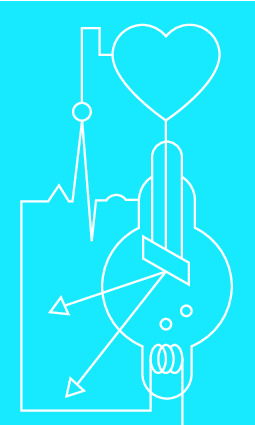|
|
|
| Module code: BMT2524.MLM |
|
|
2S (2 hours per week) |
|
3 |
| Semester: 5 |
| Mandatory course: no |
Language of instruction:
German |
Assessment:
Seminar
[updated 21.10.2024]
|
BMT2524.MLM (P213-0207) Biomedical Engineering, Bachelor, ASPO 01.10.2018
, semester 5, optional course
BMT2524.MLM (P213-0207) Biomedical Engineering, Bachelor, SO 01.10.2025
, semester 5, optional course
|
30 class hours (= 22.5 clock hours) over a 15-week period.
The total student study time is 90 hours (equivalent to 3 ECTS credits).
There are therefore 67.5 hours available for class preparation and follow-up work and exam preparation.
|
Recommended prerequisites (modules):
None.
|
Recommended as prerequisite for:
|
Module coordinator:
Prof. Dr. Robert Lemor |
Lecturer:
Prof. Dr. Robert Lemor
[updated 01.10.2024]
|
Learning outcomes:
After successfully completing this module, students will:
1. Have a basic understanding of the concepts and methods of machine learning and deep learning in relation to medicine.
2. Be able to analyze and evaluate scientific literature.
3. Be familiar with current research approaches and applications of ML and DL in medicine.
4. Be able to present complex scientific work clearly and concisely.
5. Be able to hold critical discussions about the advantages and disadvantages of ML and DL methods in a medical context.
[updated 21.10.2024]
|
Module content:
Machine learning (ML) and deep learning (DL) have made significant progress in recent years and are increasingly being applied in medicine. These technologies offer promising opportunities for improving diagnostic accuracy, developing personalized therapies, and optimizing clinical workflows. The seminar “Machine Learning and Deep Learning in Medicine” aims to give students in-depth insight into the current research developments and applications of these technologies in the medical field.
The seminar begins with an introduction by the lecturer to the terminology and methodology of machine learning and deep learning. After that, the participants will present and discuss individual research papers from current literature.
Represented by the lecturer:
- Definition and basics of machine learning and deep learning
- Overview of applications in the medical field
- Methodological principles and technical requirements
Presentations and discussions by and with the participants:
Each participant selects a current research paper from the bibliography provided and prepares a presentation. The presentations should cover the following points:
- Research goals
- Methodology and the algorithms used
- Results and their interpretation
- Critical evaluation of the study
List of some possible topics (based on the bibliography provided):
1. Diagnosis of diseases: using ML/DL to detect diseases such as cancer, cardiovascular diseases, diabetes.
2. Image processing and radiology: using DL to analyze medical images such as X-rays, MRIs, and CT scans.
3. Genomics and personalized medicine: applying ML/DL to analyze genomic data and develop personalized treatment plans.
4. Prognosis and prediction models: developing models to predict the progress of diseases and treatment outcomes.
5. Robotics and surgery: using ML to support and automate surgical procedures.
6. Electronic health records (EHRs): analyzing EHR data to improve clinical decision making.
7. Natural Language Processing (NLP) in medicine: processing and analyzing medical texts and records.
[updated 21.10.2024]
|
Recommended or required reading:
A detailed bibliography will be provided at the beginning of the seminar.
Important sources include:
- Goodfellow, I., Bengio, Y., & Courville, A. (2016). "Deep Learning". MIT Press.
- Esteva, A., Robicquet, A., Ramsundar, B., et al. (2019). "A guide to deep learning in healthcare". Nature Medicine, 25(1), 24-29.
- Lundervold, A. S., & Lundervold, A. (2019). "An overview of deep learning in medical imaging focusing on MRI". Zeitschrift für Medizinische Physik, 29(2), 102-127.
[updated 21.10.2024]
|


